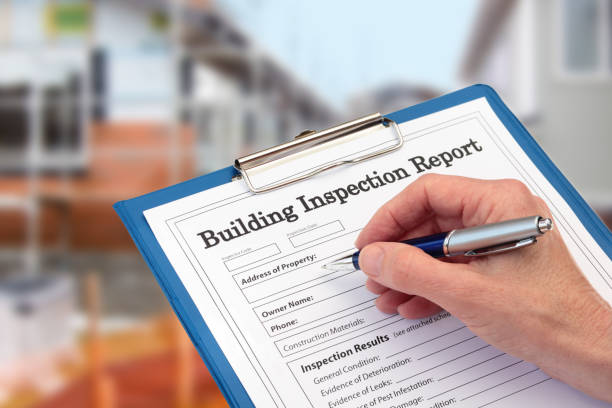In the world of real estate, building inspection reports are invaluable tools. Whether you’re a homeowner, an investor, or a property manager, these reports help you make informed decisions about the properties you own or manage. They provide essential insights into the condition of a building, identifying potential problems that could affect its safety, value, and longevity. This blog post will guide you through understanding and addressing the issues often found in building inspection reports, ensuring you maintain the integrity and value of your properties.
The Power of Building Inspection Reports
Building inspection reports are crucial for anyone involved in property ownership or management. They offer a comprehensive overview of a building’s current condition, highlighting areas that may need attention. For real estate investors, these reports help in assessing the true value of a potential investment, ensuring there are no hidden surprises after purchase. Property managers use them to plan maintenance and repairs, while homeowners rely on them to safeguard their family’s safety and investment.
A good inspection report can uncover hidden issues that may not be immediately visible during a casual walkthrough. It can identify problems with the foundation, roofing, plumbing, electrical systems, and more. By addressing these issues early, property owners can prevent minor problems from turning into costly repairs down the line. Thus, understanding the contents of an inspection report is vital for taking timely corrective actions.
For many, the technical jargon in these reports can be overwhelming. However, with the right knowledge and guidance, you can interpret these findings effectively. This post aims to simplify the process, making it easier for you to understand and act upon the information provided.
Common Issues Found in Building Inspection Reports
Building inspection reports generally categorize issues into several key areas, including structural, electrical, plumbing, and safety concerns. Understanding these categories is the first step in addressing the issues effectively.
Structural Concerns
Structural issues are among the most critical problems identified in inspection reports. These include cracks in the foundation, sagging roofs, and compromised load-bearing walls. Such issues can significantly affect a property’s stability and safety. It’s crucial to assess the severity of these problems, as they can lead to more serious damage if left unaddressed.
Electrical Hazards
Electrical issues are common in older properties and can pose significant safety risks. The inspection report may highlight outdated wiring, faulty circuits, or insufficient grounding. These problems not only threaten the safety of occupants but can also impact insurance rates and resale values. Engaging a professional electrician to evaluate and rectify these issues is often recommended.
Plumbing Problems
Plumbing issues, such as leaks, faulty fixtures, or outdated pipes, can lead to water damage and mold growth. They are often highlighted in inspection reports due to their potential to cause extensive damage if ignored. Addressing plumbing problems promptly can save you from expensive repairs and health hazards associated with mold and mildew.
Safety Concerns
Safety issues inspection may include everything from inadequate fire exits to unstable staircases or railings. These problems can endanger the lives of occupants and may result in legal liabilities for property owners. Ensuring that your property meets all safety standards is not only a legal obligation but also a crucial aspect of responsible property management.
Interpreting Inspection Report Findings
Once you receive your building inspection report, it’s important to understand what the findings mean for your property. Each issue identified has implications for the property’s value and safety, and understanding these implications is key to making informed decisions.
When going through the report, pay attention to how issues are prioritized. Most reports will categorize problems as major, moderate, or minor, giving you an idea of which ones require immediate attention. For example, a major structural issue, such as foundation cracks, should be addressed promptly to prevent further damage and preserve the property’s value.
It’s also important to consider the potential impact of each issue on the property’s marketability. For investors, unresolved issues can affect a property’s resale value, while for homeowners, they can hinder refinancing efforts. A thorough understanding of these impacts can guide you in prioritizing repairs and managing your property effectively.
If you’re unsure about the severity or implications of any issues identified, seek professional advice. A qualified contractor or inspector can provide valuable insights and recommendations for addressing the problems effectively.
Addressing Building Inspection Report Issues
Addressing issues found in a building inspection report requires a systematic approach. This section will guide you through the steps to effectively tackle these problems.
Step 1: Seek Professional Advice
Engaging a professional to assess the issues identified in the report is crucial. They can provide a detailed analysis of the problems and offer recommendations for repairs. Depending on the nature of the issues, you may need to consult a structural engineer, electrician, plumber, or general contractor.
Step 2: Estimate Repair Costs
Understanding the cost implications of addressing the issues is essential for budgeting and planning. Request quotes from multiple contractors to get a realistic estimate of the repair costs. Consider the long-term benefits of addressing these issues, such as increased property value and reduced maintenance costs.
Step 3: Prioritize Repairs
Based on the severity and impact of the issues, prioritize the repairs. Focus on addressing major structural and safety concerns first, followed by less critical problems. This approach ensures that the most pressing issues are dealt with promptly, minimizing potential risks.
Step 4: Plan and Execute Repairs
With a clear understanding of the issues and associated costs, proceed with planning and executing the repairs. Ensure that all work complies with local building codes and regulations. Regularly monitor the progress of the repairs to ensure they are completed to a high standard.
Preventing Future Issues Through Maintenance
While addressing existing problems is important, preventing future issues is equally crucial. Regular maintenance and proactive measures can help you keep your property in top condition.
Implement a routine maintenance schedule that includes regular inspections of key areas such as the roof, foundation, plumbing, and electrical systems. Timely maintenance can help identify potential problems before they escalate into major issues.
Consider investing in modern technologies and materials that enhance the property’s durability and efficiency. For example, upgrading to energy-efficient appliances and fixtures can reduce utility costs and improve the property’s appeal to potential buyers or tenants.
Stay informed about industry trends and best practices in property maintenance. Engaging with professional organizations and attending workshops can provide valuable insights and networking opportunities.
Building inspection reports are powerful tools that provide valuable insights into a property’s condition. By understanding and addressing the issues identified in these reports, property owners can ensure the safety, value, and longevity of their investments.
Addressing inspection report issues requires a systematic approach, professional expertise, and proactive measures. By prioritizing repairs, estimating costs, and preventing future problems through regular maintenance, property owners can protect their investments and enhance their property’s appeal.
If you’re ready to tackle your building inspection report, reach out to qualified professionals for guidance and support. Share your experiences or seek additional advice from industry experts to ensure your property remains a valuable asset for years to come.
We Offer Comprehensive Building Inspection Report
When it comes to making informed decisions about property investments in New Zealand, the devil is in the details. At Alert Building Inspection, we provide comprehensive building inspection reports that cater to both residential and commercial properties in Auckland, Wellington, Christchurch, Northland and many more area. Our thorough evaluations cover everything from structural integrity and safety compliance to potential vulnerabilities and maintenance suggestions. Each report is crafted by our team of certified experts, ensuring you receive accurate, detailed information that empowers you to make confident, informed choices. With Alert Building Inspection, every nook and cranny of your potential investment is meticulously assessed, giving you peace of mind and a clear path forward in your property endeavors. Don’t wait for anything, Book your inspection today.

